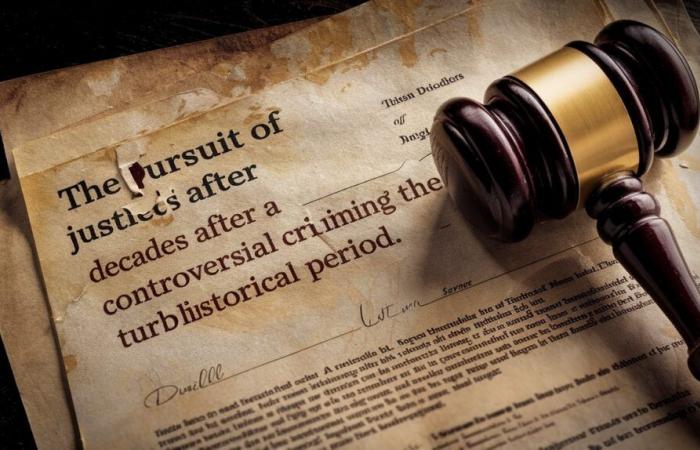27 years after the murder of a Catholic in Northern Ireland, justice demands an investigation into the role of the United Kingdom. A step towards the truth for the families of the victims of the “Troubles”?
A historic court decision has just been reached in Northern Ireland. The High Court in Belfast has in fact ordered the British government to open a public inquiry into the murder of a Catholic in 1997, during the dark period of the “Troubles”. This case sheds harsh light on the alleged involvement of British agents in this crime.
Judge Michael Humphreys could not have been clearer: for him, London has “an unambiguous obligation” to launch investigations into the assassination of Sean Brown. The 61-year-old father of six was kidnapped and then executed by a loyalist paramilitary group while he was closing his sports club in Bellaghy, west of Belfast. A heinous crime that has not yet been solved.
A 27-year battle for the truth
For the victim’s family, this court decision represents a real victory. For 27 long years, they have fought tirelessly to shed light on the circumstances of the death of their loved one. And the latest developments give them reason to believe that a decisive turning point is taking place.
Indeed, when the investigation was relaunched in Northern Ireland, those close to Sean Brown learned crucial information: more than 25 people were linked to his assassination, including agents of the British state. An explosive revelation that could well shake the establishment.
London called to account
Faced with these disturbing elements, Judge Humphreys found that the British government had failed in its international human rights obligations. The latter in fact require an investigation into the possible involvement of the State in murders, including those occurring during the Northern Irish conflict which bloodied the region from 1968 to 1998, leaving more than 3,500 dead.
London’s initial refusal to open a public inquiry into the Sean Brown affair therefore appears difficult to understand. But with this court order, the United Kingdom will have no choice but to comply and lay its cards on the table. The families of the victims hope to finally know the truth.
Towards the end of the silence on the “Troubles”?
More broadly, this affair could well move the lines on the unsolved crimes of the “Troubles” period. Since the 1998 peace agreement, 1,200 deaths are still the subject of police investigations according to the British government. So many wounds still open for loved ones.
A new commission, the ICRIR, was set up on May 1 to try to shed light on this dark past. But the law which established it, carried by the previous conservative government, is far from unanimous. Described as an “amnesty” by its detractors, it must put an end to criminal investigations and prosecutions for crimes linked to the conflict, while granting immunity to veterans.
This law is an insult to victims and a slap in the face of justice.
Anonymous member of a victims association
A sign of the extreme sensitivity of the subject, Dublin even filed a complaint against London before the European Court of Human Rights concerning this controversial text. Although the new Labor government has committed to amending certain provisions, it does not intend to reverse the creation of the ICRIR.
Still a long road to reconciliation
The Sean Brown affair shows in any case that despite the years, the wounds of the “Troubles” are still raw. And that the path towards true reconciliation between communities and lasting peace is still long and fraught with pitfalls.
But for the families of victims like that of Sean Brown, every step toward the truth, no matter how small, is a priceless victory. And they are determined to see their fight through to the end so that justice can finally be done. However long it takes.
Because as Martin Luther King said, “the arc of the moral universe is long, but it bends toward justice.” A quote that takes on its full meaning in the Northern Irish context. Future developments in the Sean Brown affair and other Troubles cold cases will tell us whether this maxim holds true. The families of the victims want to believe it. Against all odds.






